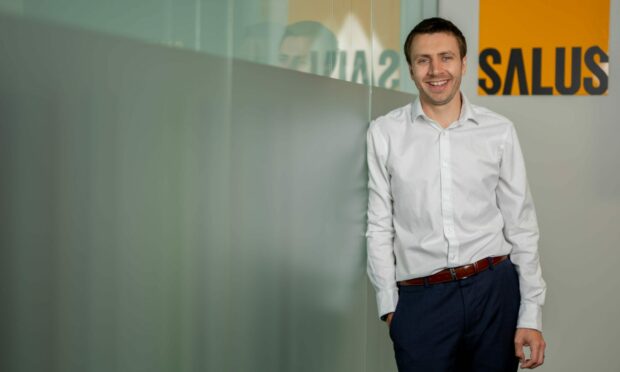Salus Technical is celebrating a string of international contracts after the launch of its risk assessment software during 2021.
The company, based in Westhill, Aberdeenshire, said it had since widened its customer base to incorporate a range of major hazard industries around the world.
The diversification has paid off in a raft of new orders.
David Jamieson, who founded the business in 2015, developed the cloud-based software, Bowtie Master, with the intention of helping organisations to understand and manage the risks of major accident hazards, thereby reducing their incidence.
While the consulting arm of Salus has historically been focused on the oil and gas industry, the balance is shifting to include a higher proportion of other major hazard industries.
One of the drivers for launching Salus Technical was that I knew there were a lot of safety lessons learned in oil and gas that could be easily and effectively transferred to other industries.”
David Jamieson, Salus Technical.
Salus reported an “ever-increasing” number of inquiries from the cyber security, decommissioning and offshore wind sectors.
The firm said it had also been invited to tender for several hydrogen generation projects.
More than 60% of its software customers are now drawn from a range of major hazard industries outwith oil and gas.
These include distilleries, TechnipFMC and Shearwater Geo from the marine sector, GKN Aerospace and United Utilities.
English water firm United Utilities has signed up for a five-year deal, bringing the total software income from these other sectors to more than 75% of total revenue.
Customers far and wide
Salus now has customers using the cloud-based software across six different time zones, including South America and New Zealand.
Turnover is predicted to exceed £220,000 for this financial year, with 20% of that derived from software sales.
Mr Jamieson’s career includes work across a range of industries, including a stint in motorsport – he was a computational fluid dynamics engineer for Red Bull Racing.
He said: “One of the drivers for launching Salus Technical was that I knew there were a lot of safety lessons learned in oil and gas that could be easily and effectively transferred to other industries.
“As the energy transition gathers momentum, I strongly believe we should take heed of these lessons in order to prevent any injury or loss of life.”
Other sectors are catching on to their potential for proactively increasing the safety competencies of their teams.”
The process safety engineer added: “Bowtie diagrams have been in use as a proactive risk tool in the oil industry since the 1990s – they are an excellent means of helping to understand, visualise and communicate risks from major accidents, regardless of industry.
“Now other sectors are catching on to their potential for proactively increasing the safety competencies of their teams, and we predict further growth areas in cyber security, geothermal, carbon capture and storage, and rail safety.”
Salus already has a second product in development which is due to launch early this year.
Allowing users to better understand how human error can contribute to major accidents, it will also be applicable to multiple industries around the world.
How Aberdeen safety specialist learned skill set in Formula One
